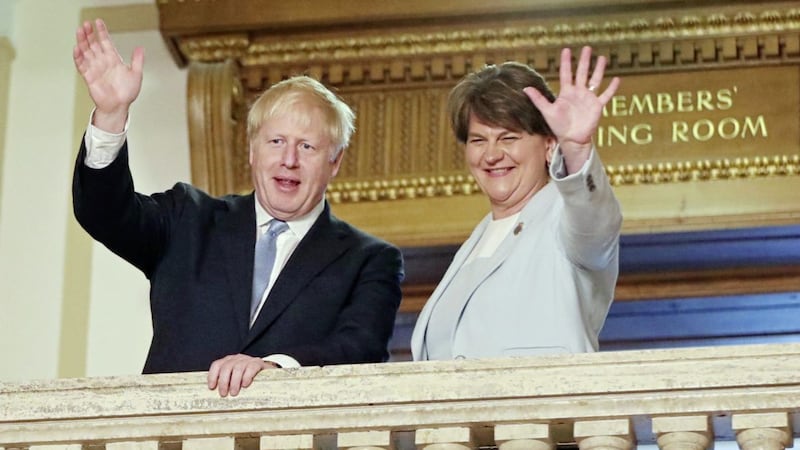“Anti-democratic” is how Boris Johnson denounced the backstop in his letter to the EU this week.
As an alternative, he proposed a legal guarantee against a hard border if other arrangements cannot be found by the end of a transition period, which sounds enough like the backstop to show its basic concept is not going away.
Certainly, unique arrangements for Northern Ireland are inevitable. Some form of sea border has always been the obvious way to avoid a hard border, as the government has promised to do. The backstop as a guarantee only puts that promise in writing. A sea border is greatly simplified by shadowing single market regulations, which any country that wants a deep trading relationship with the EU has to do regardless.
Even the DUP has recently accepted all of this in principle, by suggesting it in regard to food and farming.
Theresa May’s government accepted it by agreeing the Withdrawal Agreement, which Johnson voted for in March.
The jury is out on whether the prime minister’s letter is a genuine contribution to the UK’s Brexit debate or just insincere stalling. Either way, it is significant the letter demands the backstop be replaced by, in effect, the backstop. Even while bluffing, it seems Johnson does not have a better idea.
However, the letter does place a new emphasis on criticism of the backstop as anti-democratic, describing this as a breach of both UK sovereignty and the Good Friday Agreement.
Many in Northern Ireland will find that deeply ironic, given the vote here against Brexit. The lack of democracy Johnson refers to is Northern Ireland being placed under EU regulations and laws over which it has no say.
There is no point pretending this is not a legitimate issue. It goes beyond technical matters of product standards and food safety to include things like state aid that would place real constraints on devolved and national policies.
The government’s proposed solution of the ‘Stormont lock’, which the DUP has also suggested it will accept, is not a bad answer. It would require a Stormont vote on diverging from EU regulations. Some nationalists have dismissed this as granting unionists a veto via the petition of concern, although use of the petition could easily be forbidden on backstop votes. In any case, it is nationalists - or more accurately, pro-backstoppers - who would have the veto because EU regulations would be the default position. The DUP would be placed under severe pressure to restore Stormont if it was the only way to pursue shadowing post-Brexit changes in Britain.
The wider idea of a mandate for the backstop, or whatever the special arrangements for Northern Ireland end up being called, was not specified by Johnson but it is beginning to look inseparable from the ‘anti-democratic’ concern.
The EU referendum did not create such a mandate, nor did the last assembly and general elections, as they all occurred before the backstop was proposed.
An internet survey this week showed majority support for the backstop but opinion polls cannot be a sufficient basis for profound political change.
Pro-backstop parties and candidates won a majority in this year’s council and European elections but many of them were campaigning to stop Brexit entirely, which muddied the waters. The next general election, almost certain to be held within months, will also provide an imperfect verdict. The Conservatives will presumably campaign on the pretence they are not intending to marginalise the DUP then impose a Northern Ireland-only solution.
Informed sources insist a backstop referendum in Northern Ireland is out of the question as it would turn into a de facto border poll, producing a uselessly narrow and divisive result. But it is striking how often the idea keeps recurring and how casually it is raised by Tory backbenchers. Perhaps, like the backstop, it is acquiring a sense of the inevitable.
If unionism did narrowly lose such a referendum then, thanks to the DUP, the result would carry the moral authority of the losers having brought it on themselves.








